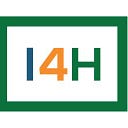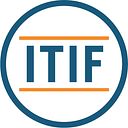Intellectual Property at Work: How SerenOx Africa is Improving Diagnostic Testing in Sub-Saharan Africa
This post is one of a series in the #Innovate4Health policy research initiative. #Innovate4Health is a joint research project by the University of Akron IP Center (UAIP), the Information Technology & Innovation Foundation (ITIF), and the Geneva Network. This project highlights how intellectual-property-driven innovation can address global health challenges. If you have questions, comments, or a suggestion for a story we should highlight, we’d love to hear from you. Please contact UAIP Research Fellow Douglas Park at dpark@uakron.edu for more information.
Natalie Khoo
Sub-Saharan Africa has long been a recipient of health aid, more so than other developing regions. A call to address the region’s pressing healthcare needs and challenges has led to significant investments and developmental aid from donors including international organizations, philanthropists, and multilateral institutions.
While these efforts have played a significant role in improving health outcomes and reducing mortality rates, the focus has predominantly been on treating diseases perceived as threats to global health security. These include zoonotic viruses and multidrug-resistant bacterial strains, with tuberculosis being just one example. As a result, there is a large emphasis on providing therapeutics such as antivirals, antibiotics, and, in some cases, targeted oncology drugs to curb the spread of such diseases. While treatments have become increasingly available and affordable, they address only part of the problem.
A critical, often overlooked component in addressing such health challenges is accurate and accessible diagnostic testing. Robust diagnostic tools are essential for the accurate identification and management of diseases, enabling timely and appropriate treatments. Yet these essential diagnostic services remain largely inaccessible to roughly 50 percent of the population in sub-Saharan Africa.
This is alarming, as the absence of early, precise, and rapid diagnostics can lead to a cascade of negative consequences. As Dr. Tedros Adhanom Ghebreyesus, Director-General of the World Health Organization, stated, “An accurate diagnosis is the first step to getting effective treatment,” and “No one should suffer or die because of a lack of diagnostic services, or because the right tests were not available,” underscoring the urgent need to bridge the diagnostic gap. Besides hindering timely and appropriate intervention for common and potentially curable diseases, the economic ramifications are also very concerning. Delayed diagnoses often lead to more severe illnesses, resulting in higher treatment costs and extended hospital stays. This not only strains the already overburdened healthcare systems in sub-Saharan Africa, but also undermines the overall effectiveness of international aid efforts.
One organization that has risen to the challenge to address the need for accurate and affordable DNA-based diagnostic services in low-and middle-income countries is SerenOx UK, a social enterprise spin-out of the University of Oxford. SerenOx UK leverages scientific expertise and intellectual property rights to enable the precise and rapid diagnoses of inherited blood disorders, infectious diseases, and early-stage cancers in sub-Saharan Africa.
Currently, SerenOx UK holds patents for a noninvasive pre-natal diagnostic test for sickle cell disease in the US and in Europe (Patent number: US10900081B2, EP2971082A1). These patents in the bioinformatics analysis of liquid biopsies and copyrighted machine-learning algorithms allows SerenOx UK to analyze circulating tumor and viral DNA for multi-cancer early detection, including those caused by infections, by simply drawing blood from the patient. Similarly, by combining affordable rapid-point-of-care carrier lateral flow testing and non-invasive pre-natal diagnosis of haemoglobinopathies from maternal plasma, SerenOx UK created a comprehensive suite of precise diagnostic tests for the most common monogenic disease worldwide.
Moreover, the DNA sequencing data, produced from its patented technology, is analyzed by SerenOx UK and made freely available for research purposes. This not only enhances the value of its patents, but also contributes significantly to research and addresses the dearth of data on the African genome, diversifying the genetic data used in biomedical research. Additionally, this enables partnerships with pharmaceutical companies that require such data to develop new drugs and penetrate new markets.
SerenOx UK has already made a significant impact in the region. According to Professor Anna Schuh, the organization has helped around 1,000 children and adults across Uganda and Tanzania, demonstrating the scalability and effectiveness of its diagnostic approach. Its commitment to improving health outcomes is further illustrated by the organization’s involvement in clinical research. SerenOx UK has funded and supervised clinical trials enrolling 379 children with Burkitt’s Lymphoma, a type of cancer that is particularly prevalent in parts of Africa.
Recognizing the far-reaching effects of Seren0x UK’s intellectual property and innovative diagnostic technologies, Professor Schuh saw an opportunity to expand its services to the rest of Africa. Building on 18 years’ experience developing genetic tests for blood diseases and cancer, she founded SerenOx UK’s sister company, SerenOx Africa, the first specialized hematology and hemato-oncology clinic and laboratory in sub-Saharan Africa. Based in Dar-es-Salaam, Tanzania, the team, led by Dr William F. Mawalla, is now offering low-cost, low-maintenance tests for as little as $10. SerenOx Africa employs cloud-based data systems that allow remote analysis by experts, eliminating the need to send samples abroad, which can be challenging and costly. This innovative approach ensures timely and accurate diagnoses while leveraging global expertise. Moreover, funding from patients who can afford to pay for services enables SerenOx Africa to offer testing more widely to those who are unable to pay, ensuring greater accessibility and equity in healthcare.
In addition to providing cost-effective and accessible diagnostics, a key focus of SerenOx Africa is building local capacity and ensuring long-term sustainability. In developing countries like Tanzania, clinicians and scientists often lack sufficient knowledge, exposure, and expertise to produce high-quality laboratory test results, to conduct bioinformatics analyses, and to clinically interpret the results, all of which are crucial for a DNA test’s quality and accuracy. Therefore, to address this gap, SerenOx UK provides training to ensure the quality of sample processing in the laboratory and to support data interpretation, effectively amplifying the transfer of know-how.
SerenOx UK and SerenOx Africa’s vision to ensure that “patient-near, fast, accurate and affordable testing for key treatable diseases are commonly available to all patients in sub-Saharan Africa” is a testament to the vital role IP rights play in addressing global health challenges. Its success, rooted in SerenOx UK’s patented technology, has paved the way for ambitious future plans. These include implementing non-invasive prenatal diagnosis for sickle cell disease into routine prenatal work-up, starting with the UK’s National Health Service (NHS), running early cancer detection tests in India, and consolidating SerenOx Africa’s presence in Tanzania.

